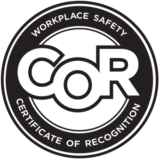The home improvement industry is full of passionate people around the world who simply want to help people better their living spaces. The industry has hundreds of subsegments, specialties, and areas of expertise where entrepreneurs aim to fill a market need. As their businesses grow, they inevitably bump into one another – their service offerings continue to grow, and their customer bases grow along with them. Generally, the market has a fairly low barrier to entry, meaning that anyone with a few thousand dollars in tools can get started, working out of their home and personal vehicle until they’re ready to expand.
All of these market forces can result in a very high degree of competition, which challenges businesses to find ways to stand out and differentiate themselves. At Mosaic, identifying and developing value around competitive differentiating factors is a multi-step process.
Know Your Customer
If you let them, your customers will “want” your home improvement business to death. Oftentimes one home improvement project bleeds into another – a paint job becomes a drywall repair, which becomes installing new baseboards, which becomes installing the wall mounted TV, and so on. All of these projects sound simple, but each requires a different skillset, a different set of tools & materials, and will delay the completion of the project beyond its original date, pushing back the next customer in line. If you want to stand out in a competitive market, you have to accept that you must say “no” to a customer that’s asking for something so that you can say “yes” to the next one who’s waiting.
Getting granular on the type of customer you want to work for is the first step in the process because it allows you to hyper focus on developing a value proposition that makes sense for them. For example, service plumbers are hired for a variety of reasons by a variety of homeowners. The family who hires a plumber to come to their million dollar home to install a new tankless hot water heater has drastically different buying behaviors than the single mom who needs someone to come unclog a drain. These clients have different levels of urgency, will want to communicate with the company in entirely different ways, have different willingness to pay, different warranty expectations, and so on. You can’t begin to stand out in this hyper competitive industry until you decide which type of customer you primarily want to do work for.

Ask Your Customer
Once you’ve identified your customer, building a great business becomes much simpler. If you want to know what your customer wants, and why they hire you, just ask. Surveying customers about why they hired you, what other companies they considered hiring, and how their experience was, is an incredibly powerful source of information that can inform future decisions. If you want more customers, simply look at your book of business, find your best customer, and ask them how they found you. Your marketing strategy lies entirely in what they tell you. Don’t be afraid to ask that customer for a referral at the same time – your A customers know other A customers!
Know Your Team
Once you’ve identified exactly what kind of customer you’d like your business to focus on servicing, it’s time to assemble a team specially designed to service them. Again, getting granular is key.
For example, many people think that hiring a window washer is easy – you need to drive a vehicle, climb a ladder, and use a squeegee. The reality is that oftentimes employers expect their team to complete a variety of tasks, and often they can’t be good at all of them.
Your window washer may need to wash the outside of a window, enter the customer’s home in a professional and courteous way, safely set up a ladder on their brand new hardwood, wash the interior of the window without spilling a drop of water, and leave the home as though they were never there. More often than not, on top of this set of skills, window washers need to climb on roofs, clear out gutters, run high powered pressure washers without causing property damage, manage a schedule, collect payment, generate invoices, knock on the neighbors door to try to sell the next job, and so on. It’s not as simple as “washing windows.”

Understand exactly what your customer wants, then build a team with the specific skill sets required to provide that service. If your customer wants to have a seamless experience where they never see anyone, you need a simple window washer. If your customer wants to speak to the team, have them clean the interior, have the home power washed, and the gutters made spotless, you need a customer service expert, not a window washer.
Put simply, standing out in the hyper competitive home improvement market isn’t about spending the most money on TV commercials. Standing out requires you to get incredibly clear on who your service is built for, and ensuring every one of their wants & needs is fulfilled in a way that no one else can.






